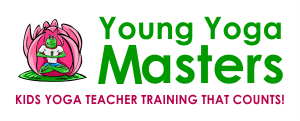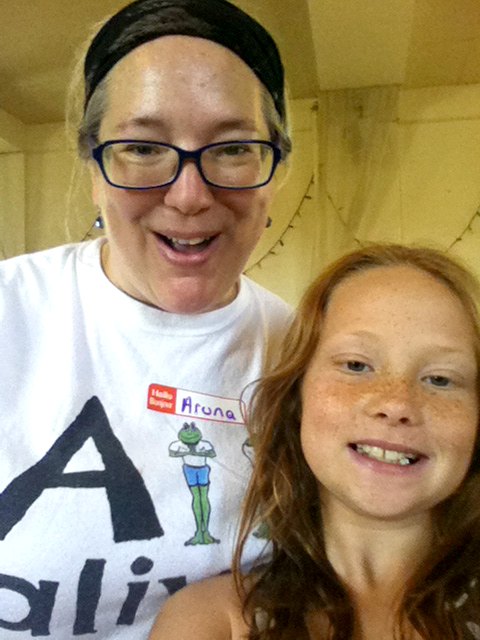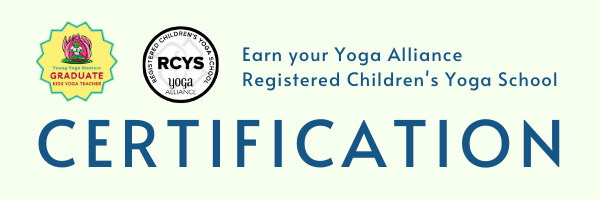When teachers or parents start getting frustrated with children they often resort to asking questions to get back control of the situation. The problem is when these questions aren’t really questions but are criticisms disguised as questions.
Questions like these don’t help with classroom management and don’t help the child correct their behavior either.
For example:
- A pre-school teacher assisting in yoga class who pulls an overactive 3 year old out of the room, stands over her asking: “Are you a baby? Do you want to go to the baby room? Why are you acting like a baby?”
- A parent overheard in the grocery store saying (loudly) to a little 3 or 4 year old girl: “If I’m right beside you, why are you yelling?”
If these children answered it would probably go something like:
- “I guess I am a baby because you’re talking to me like I’m a big loser and an idiot.”
- “I’m yelling because that’s what you do when you want my attention.”
These types of questions just don’t work. I’ve NEVER heard a child give what I suppose is the desired answer:
- “No I’m not a baby, so I will stop my goofing around and start acting like a three year old.”
- “Mommy, you’ve pointed out my error so well, I better use a softer voice.”
In my experience, children never actually answer these types questions. They just stand there frozen, not sure what to do or say, feeling bad about themselves. In terms of classroom management, it may stop the behavior for a while, but in the long term it doesn’t provide the leadership required to help children become the leaders of the future. It lowers their self esteem by making them feel incompetent.
Instead of Questions, Be a Role Model…
A great teacher doesn’t let unwanted behavior go unnoticed either. We don’t serve children if they can’t sit still or aren’t aware of how loud they are talking. Instead try some other approaches. Like:
- the teacher assisting can calmly walk over to an overactive three year old and sit beside them and with one or two words, remind them of what everyone is doing (“cobra pose, everyone is doing cobra pose”), and modeling the behavior they want,
- A tired mom in the grocery can drop down, look her daughter in the eye and say, “Please speak softer” in the same tone she wants her daughter to use.
Both Yoga and Classroom Management require Sadhana, a consistent practice that helps us succeed at our goal. Sadhana is done with devotion, not with criticism or questioning. Consistency brings us to the state we desire through practice, reflection on our actions, and observation of what we are doing and how it is working.
Teachers and parents are role models for children in ALL we do. These children will become the role models of the future. We need to commit to consciously creating the kind of class we want the same way a true yogi commit to their Sadhana.
This week bring awareness to your use of questions. Are they real questions waiting for real answers or criticisms disguised as questions. If you are not sure, what answer are you looking for when you ask? If you want the child to answer with a specific response, it’s probably not a real question.
If you realize it’s a criticism, and you don’t know what else to do, start by simply stating your frustration, “You’re moving around too much.” or “You’re too loud.” It’s an honest starting place and a move away from those other questions.
Then re-direct with a precise description of what you. And do it like the yogis – with consistency, with love, and make it like a mantra – short, sweet, and elevating!
Please feel free to share your classroom management stories and how you re-direct children. It will help all of us to get new ideas and tools.
Aruna Kathy Humphrys
www.YoungYogaMasters.com
P.S. Thanks to everyone who entered the Eoin Finn DVD Giveaway for Pure and Simple Yoga. The random winner is Betherann – who blogs over at ww.kitchencourage.com. Congratulations.



Thanks for everyone’s comments – it’s great to see the different views on the words and methods we use as parents or teachers.
It’s important to take stock of our words and the way we use them. Often we fall into ruts which don’t bring about the desired results. I find it essential to remember to respect my children as I would a good friend. If/when I hound them or demean them (albeit inadvertantly) it errodes our relationship. You can literally feel each party receed behind protective walls. This is especially true with pre-teens and teens. The golden rule – treat others as you would want to be treated – helps us to meet our children and students as equal partners in life’s journey, sharing and growing together.
questions like those are very shaming…and like you stated, it doesnt work. maybe in the short term it will get the child to “hush up” or “behave,” but in shame, the child will not learn anything but self dislike.
thank you great topic.
thanks for your comments everyone;
@ Amy – I appreciate your honesty and I know questioning is used a lot in school and home.
Is a little bit of shaming okay? Good question, it’s definitely been used for a long time. My mother used to say: You should be ashamed of yourself! and I was, and did change my behavior.
As yogis, I think part of our growth is to consciously look at what we do and decide whether this is what we WANT to do or what we just do out of habit. If there are better ways, through yoga and meditation we can adopt them.
I’m curious if you feel asking a child if they are a baby is crossing the line of shaming?
Interesting topic – I’ve never done this in the yoga classroom setting but I have with my own kids. (Sometimes a mom will try anything!) The biggest example I can think of is that sometimes I’ll say, “Do we hit each other in this family?” and wait for any answer, which I can honestly say, I sometimes, not always, receive. I’m not sure I agree that this is overly critical, because in my mind, it’s a reminder of the rules. It’s hard to model “Not hitting”, although I do always follow by discussing other ways in which the child can communicate his anger or frustration. I don’t think that makes the child feel bad about themselves, I think it’s just a healthy reminder. And if they do feel shameful for a moment, isn’t that the lesson not to do it again? Just playing devil’s advocate! I’m interested in hearing others’ thoughts from the parenting perspective.
Great reminders – thank you! I try to remember that children will reflect back to us the energy that we project. If we are projecting frustration and disappointment in our children, it’s going to make things worse. I try to take a deep breath, pause, find my own center, then proceed with a compassionate reminder, sans too much seriousness (unless safety is an issue). Typically subtle or literal redirection works well.
Thanks Aruna!
very good reminder! =)